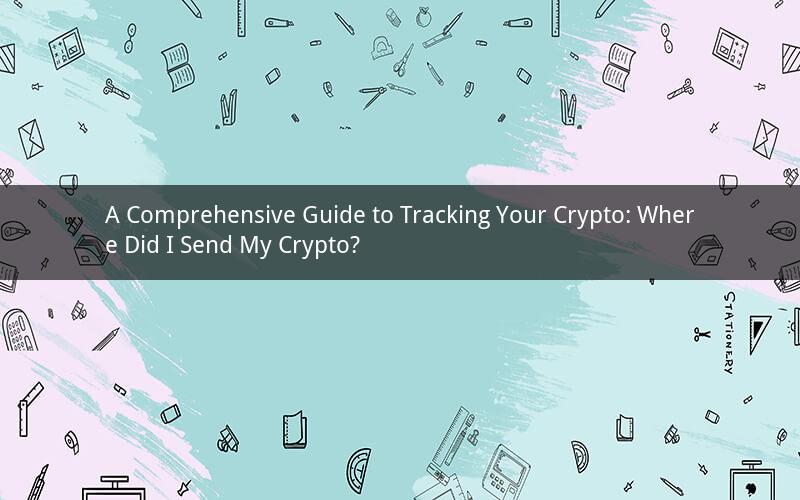
In the rapidly evolving world of cryptocurrency, it's not uncommon to encounter situations where you need to track your digital assets. Whether you're a beginner or an experienced investor, knowing where you sent your crypto is crucial for maintaining control over your finances. This article delves into the various methods and tools available to help you trace your cryptocurrency transactions, ensuring that you can locate your funds with ease.
1. Checking Your Cryptocurrency Wallet
The first step in determining where you sent your crypto is to check your wallet. Most wallets provide a detailed transaction history, allowing you to see all the incoming and outgoing transactions associated with your account. Here's how you can locate this information:
- Open your cryptocurrency wallet.
- Navigate to the "Transaction History" or "Activity" section.
- Look for the specific transaction in question, noting the recipient's address and the amount sent.
- Verify that the transaction has been confirmed on the blockchain.
2. Utilizing Blockchain Explorer
If you can't find the information in your wallet, a blockchain explorer can be a valuable tool. Blockchain explorers provide a comprehensive view of all transactions on a specific blockchain, allowing you to search for your transaction by address or hash. Here's how to use a blockchain explorer:
- Choose a blockchain explorer for your specific cryptocurrency (e.g., Blockchain.com for Bitcoin, Etherscan for Ethereum).
- Enter the recipient's address or the transaction hash in the search bar.
- Review the transaction details, including the sender, recipient, amount, and timestamp.
3. Using Cryptocurrency Trackers
Cryptocurrency trackers are specialized tools designed to help users monitor their transactions across multiple wallets and exchanges. These trackers can provide real-time updates on your assets, making it easier to track your crypto. Here's how to use a cryptocurrency tracker:
- Sign up for a cryptocurrency tracker service.
- Link your wallets and exchanges to the tracker.
- Review the transaction history and locate the specific transaction in question.
4. Contacting the Recipient
If you still can't find the information you need, contacting the recipient of your crypto may be the next step. Reach out to them through their preferred communication channel (e.g., email, social media) and ask for assistance in locating the transaction. Be sure to provide them with any relevant details, such as the transaction hash or the amount sent.
5. Consulting a Cryptocurrency Expert
In some cases, it may be necessary to consult a cryptocurrency expert or a blockchain analysis firm. These professionals can help you trace your crypto by analyzing transaction patterns and providing insights into the origin and destination of your funds. Here's how to seek professional assistance:
- Research and identify reputable cryptocurrency experts or blockchain analysis firms.
- Contact them and provide them with the necessary information about your transaction.
- Follow their guidance and recommendations to trace your crypto.
Frequently Asked Questions (FAQs)
Q1: Can I track my crypto if it was sent to an exchange?
A1: Yes, you can track your crypto if it was sent to an exchange. Simply log in to your exchange account, navigate to the transaction history, and search for the transaction in question.
Q2: How long does it take for a cryptocurrency transaction to be confirmed?
A2: The time it takes for a cryptocurrency transaction to be confirmed varies depending on the blockchain and the network congestion. Generally, Bitcoin transactions are confirmed within 10-60 minutes, while Ethereum transactions can take 2-30 minutes.
Q3: What if I sent my crypto to the wrong address?
A3: If you sent your crypto to the wrong address, it's crucial to contact the recipient immediately. There's a chance they may be willing to help you retrieve the funds. If not, you may need to consult a cryptocurrency expert or blockchain analysis firm for assistance.
Q4: Can I track my crypto if it was sent through a third-party service?
A4: Yes, you can track your crypto if it was sent through a third-party service, such as a cryptocurrency wallet or payment processor. Simply log in to the service, navigate to the transaction history, and search for the transaction in question.
Q5: Is it possible to track my crypto if it was sent anonymously?
A5: Tracking your crypto if it was sent anonymously can be challenging, but it's not impossible. In such cases, you may need to consult a cryptocurrency expert or blockchain analysis firm to help you trace the transaction. Keep in mind that anonymous transactions can be more difficult to track and may require specialized tools and techniques.